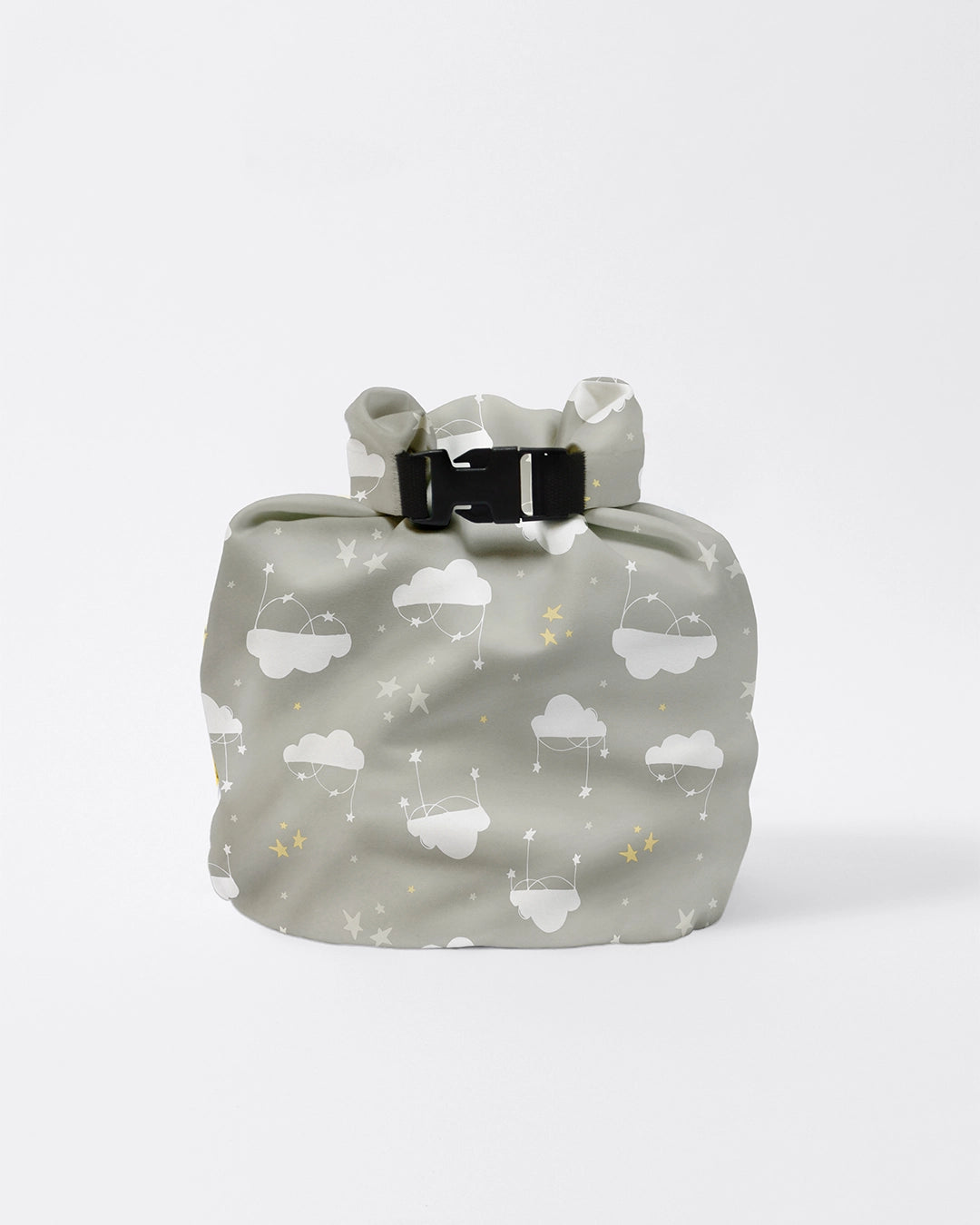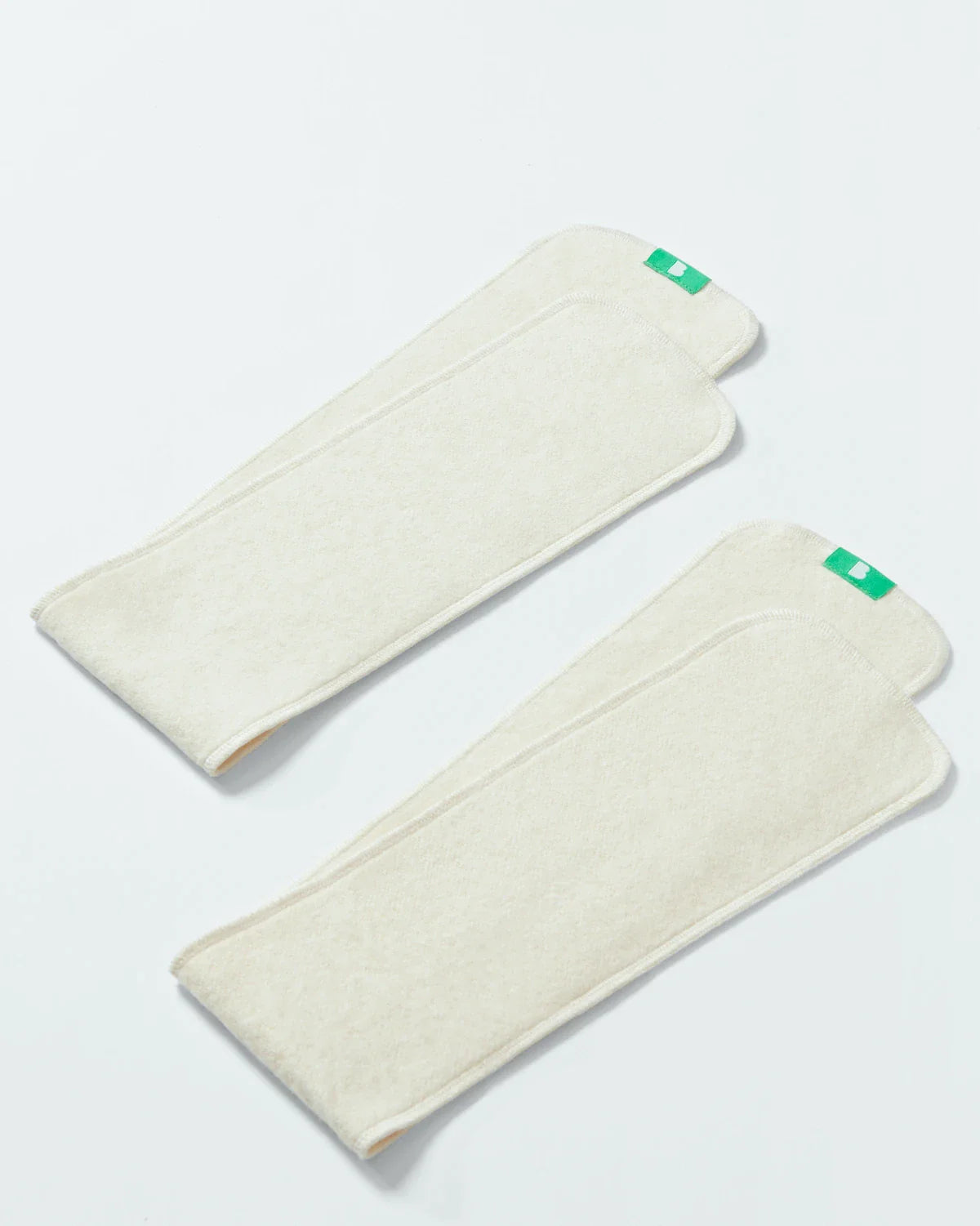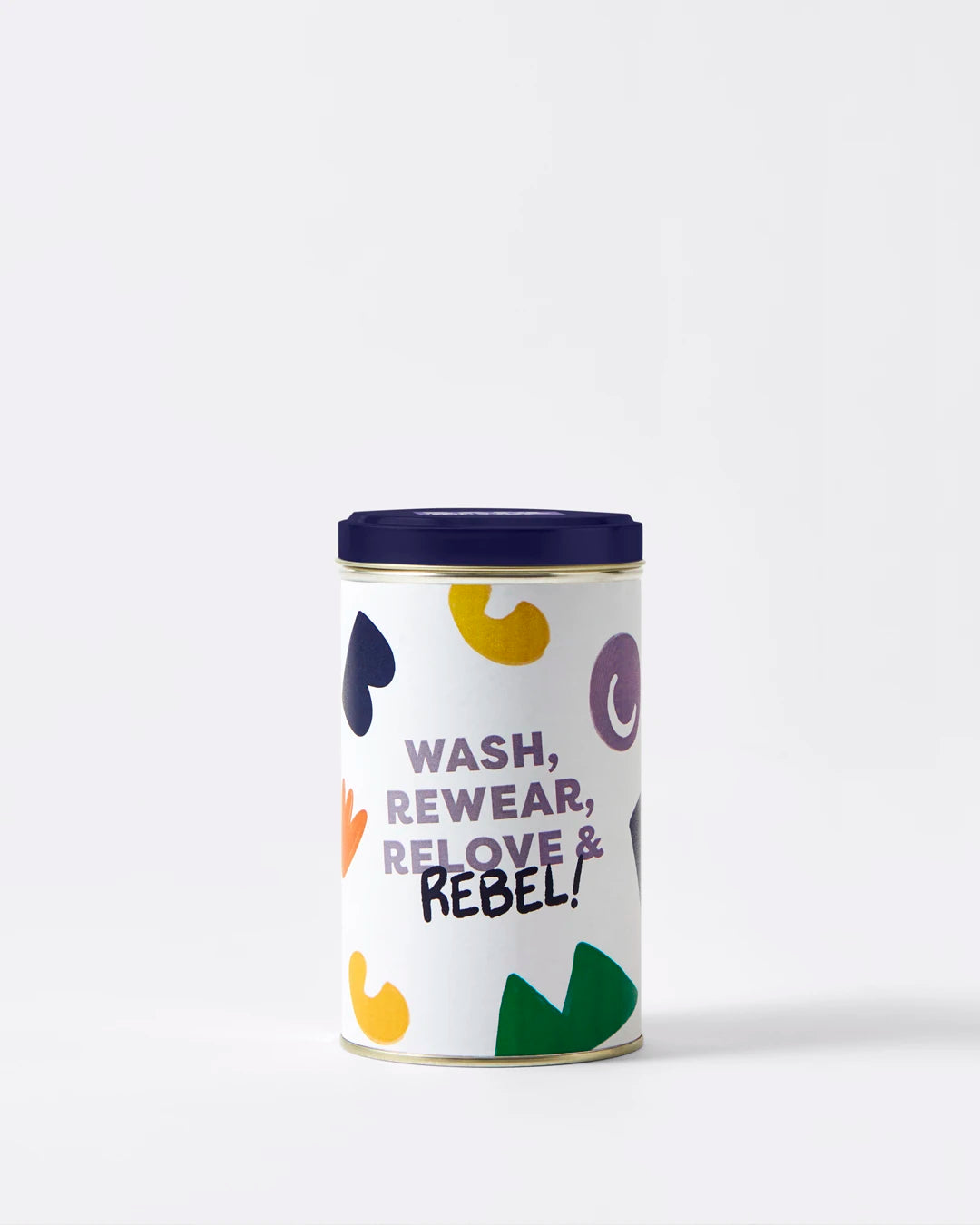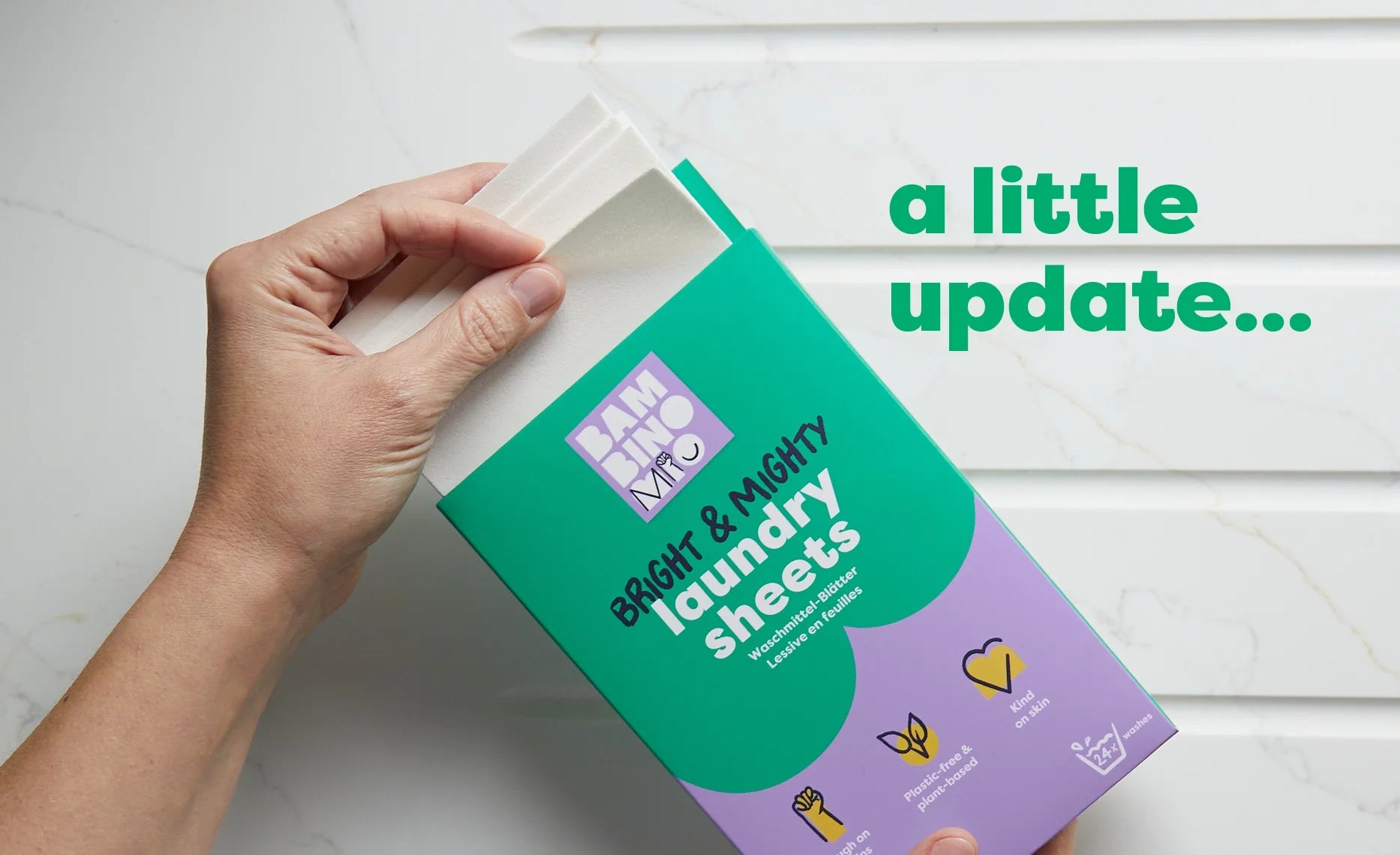Formula Milk Varieties
Share Options
- Bambino Mio
- 27 / 09 / 2023

For your attention: The nutritional information within this article is intended solely for general informational purposes. It is not to be considered as a replacement for tailored medical advice from a certified healthcare professional. It is imperative to consult with your paediatrician or a qualified medical expert before introducing new food items such as fish or nuts into your infant's dietary regimen, especially if there are pre-existing health concerns or a familial history of allergies.
Inside this Article:
Formula milk, or infant formula, is a baby food that’s usually made from cows’ milk which has been treated to make it more digestible.
There’s a bewildering array of infant formula types on the market - available from supermarkets and from pharmacies, so you need to know which type you’re buying and whether it’s suitable for your baby.
There are two main forms of formula
Formula comes in two forms, powdered and ready-to-feed liquid.
Ready-to-feed formula is more convenient and portable, but it’s more expensive and needs to be used shortly after opening.
There are also different formulations of baby formula; here are the most commonly available.
First infant formula, or first milk
First infant formula is suitable for your baby from birth and should always be the first type of formula you use to feed your baby.
Cows’ milk, which forms most formulas, contains two types of protein - casein and whey (1) - and first formula is based on whey protein as it’s easier to digest.
Your baby can stay on first formula until they start weaning (2) and even until they’re a year old if it works well for you and if there’s no need to change it. Your health visitor or GP can advise you if there’s any need to switch to another type of formula.
When your baby is 12 months old they can move onto whole cows’ milk, goats’ milk or sheep milk, as long as they’re pasteurised.
Goats' milk formula
Goats’ milk formula is also suitable from birth and is manufactured to the same high standards as cows’ milk formula.
This formula isn’t less likely to cause allergies and it’s not suitable for babies with cows’ milk allergy (3) because the proteins are very similar.
Hungrier baby formula
Hungrier baby formula is suitable from birth, but you should talk to your midwife, GP or health visitor before using it.
This formula contains more casein than whey and as casein is harder to digest, it stays in the stomach for longer. There’s no evidence, however, that babies settle more easily or sleep for longer with hungrier baby formula.
Anti-reflux formula
Also known as staydown formula, this formula is thickened to help to prevent reflux, or regurgitation (4) during and after feeds. Anti-reflux formulas might have different preparation instructions to other types and should only be used with the direction of a GP, midwife or health visitor.
Comfort formula
This type of formula is also suitable from birth, but you should get advice from your health professional before using it.
The cows’ milk proteins in comfort formula have been partially hydrolysed (broken down), making them easier to digest and absorb.
Even though the cows’ milk proteins have been partly broken down, this formula isn’t suitable for babies with cows’ milk allergy.
Lactose-free formula
Lactose-free formula is also suitable from birth, but only with medical supervision. It’s for babies who are lactose intolerant (5), which means they can’t absorb lactose, the naturally-occurring sugar found in milk.
Lactose intolerance is rare in babies and symptoms include abdominal pain, bloating, excess wind and diarrhoea. If you think your baby is lactose intolerant then you must speak to your GP, health visitor or midwife.
Hypoallergenic formula
This formula is suitable from birth but with medical supervision. If your baby has a cows’ milk allergy, your GP will prescribe a hypoallergenic formula with fully hydrolysed proteins.
Follow-on formula
Follow-on formulas are suitable for babies aged six months or older, but always check with your health visitor or GP first. You shouldn’t give this formula to babies younger than six months.
Soya formula
Soya formula is made from soya beans and is suitable from the age of six months and under medical supervision. It’s sometimes used to replace cows’ milk formula for babies allergic to cows’ milk.
There are some concerns about the phytoestrogens in soya formulas and their effects on babies’ reproductive systems (6).
Soya formula is also more likely to damage babies’ teeth (7) than cows’ milk or formula, so you should only use it if your GP or health visitor recommends it.
Growing-up milk
Growing-up, or follow-on, formula is for children over the age of 12 months and it’s marketed as an alternative to whole cows’ milk. There’s no evidence for any additional health benefits with these milks.
Cows’ milk
Whole cows’ milk is a good choice for children aged 12 months and over (8) as part of a balanced diet. Once your child is aged two years they can move onto semi-skimmed milk, but always check with your health visitor or GP before making dietary changes.
Citations and References
(1) Healthline. ‘What’s the Difference Between Casein and Whey Protein?’ 2023. Web. www.healthline.com/nutrition/casein-vs-whey
(2) National Health Service (NHS). www.nhs.uk/conditions/baby/weaning-and-feeding/babys-first-solid-foods
(3) National Health Service (NHS). ‘Health A to Z. Lactose Intolerance.’ 2023. Web. www.nhs.uk/conditions/lactose-intolerance
(4) National Health Service (NHS). ‘Health A to Z. reflux in Babies.’ 2021. Web. www.nhs.uk/conditions/reflux-in-babies
(5) National Health Service (NHS). ‘Children’s Health. What Should I Do If I Think My Baby is Allergic or Intolerant to Cows’ Milk?’ 2022. Web. www.nhs.uk/common-health-questions/childrens-health/what-should-i-do-if-i-think-my-baby-is-allergic-or-intolerant-to-cows-milk
(6) National Institutes of Health (NIH). National Library of Medicine. ‘Concerns for the Use of Soy-based Formulas in Infant Nutrition.’ 2009. Web. www.ncbi.nlm.nih.gov/pmc/articles/PMC2661347
(7) National Institutes of Health (NIH). National Library of Medicine. ‘Effect of milk and soy-based infant formulas on in situ demineralization of human primary enamel.’ 2010. Web. pubmed.ncbi.nlm.nih.gov/20298651
(8) National Health Service (NHS). ‘Weaning and Feeding. What to Feed Young Children.’ 2023. Web. www.nhs.uk/conditions/baby/weaning-and-feeding/what-to-feed-young-children







































